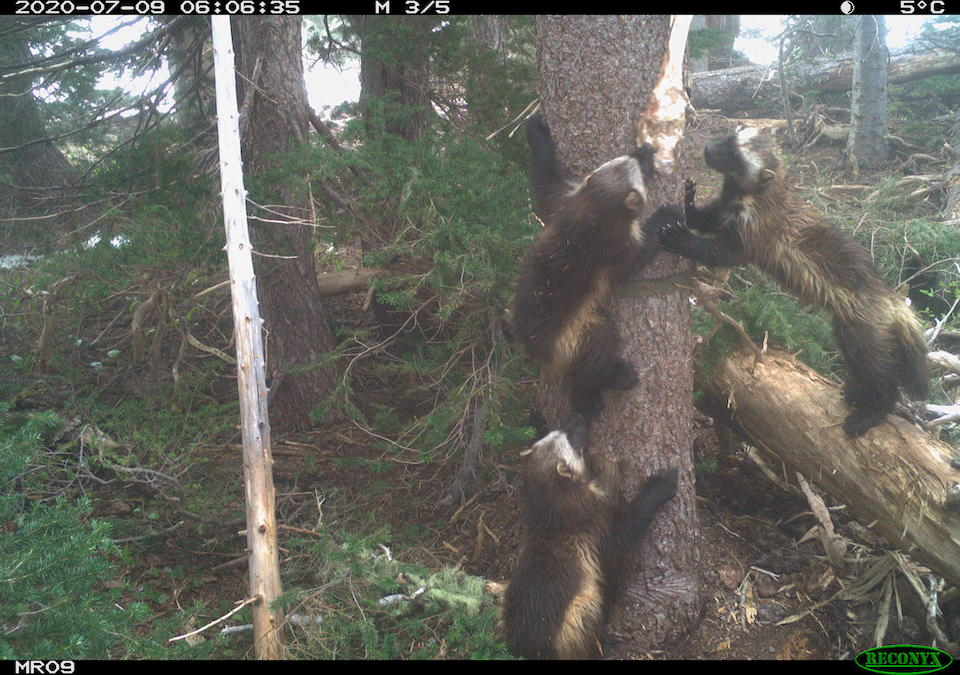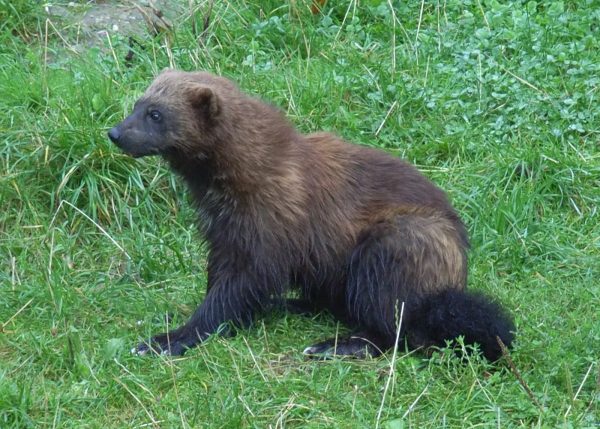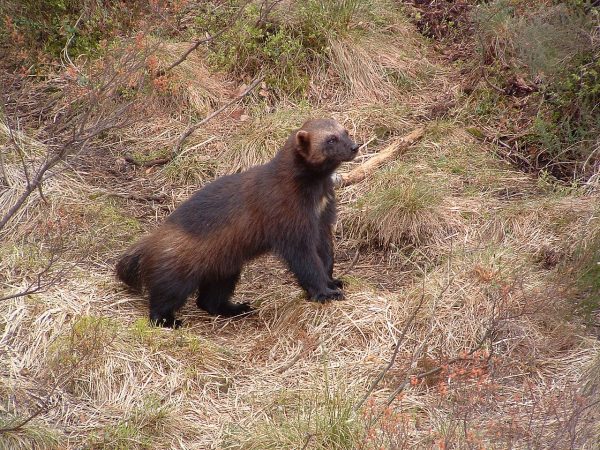The First Wolverines Seen In The Wild For Over 100 Years

Wolverines : Wildlife cameras set up in Mount Rainier National Park in Washington state saw a mother wolverine and her two kits near their den.
This is remarkable because wolverines are highly endangered with only three hundred known in the contiguous United States because of habitat loss and trapping.
It has been over one hundred years since wolverines have been seen in the wild. They are not yet protected under the Endangered Species Act but after several petitions made by Defenders of our Wildlife the inclusion has yet to be decided although a decision was slated for August 31, 2020.
According to cnn.com, wolverines are shy and usually run from humans but in May of 2020 a woman walking along the beach in Long Beach Peninsula, Washington reported to the Washington Department of Fish and Wildlife that she had seen a wolverine on the beach eating a dead animal.

At first the authorities didn’t believe her as wolverines are mostly found in the mountains but never on a beach. When the woman produced a photo, sure enough, it was a wolverine. A few days later a wolverine was photographed in Naselle, east of Long Beach Peninsula.
Mesocarnivore conservation biologist Jeff Lewis believes it is the same animal because of the two unusual locations and is concerned for its safety.
Wolverines look rather ominous but will not hurt anyone and should be left alone. If one does see a wolverine or even wolverine tracks Lewis is encouraging people to take pictures and send them with their location to their regional wildlife office. If any hair is found after they leave, it would be ideal to collect it and submit it for DNA testing.
Fws.gov tells us that wolverines resemble a small bear with a big bushy tail. They are usually nocturnal and males can reach twenty six to forty pounds while females are about seventeen to twenty six pounds.
They have small eyes, round heads with rounded ears and each foot has large claws for climbing and digging. Litters are born from February to April with one to two babies in dens with about five feet of snow surrounding them for safety and warmth.
They are not picky about their food and will eat berries, fruits, insects, birds and smaller animals such as rabbits and rodents. They will also feed on dead carcasses they find in the woods. When the kits are old enough, usually about two years old, they venture out on their own to look for food and mate.
Wolverines live about seven to twelve years in the wild. They are the largest member of the weasel family, Mustelidae, and need a lot of room to roam with some known to travel up to fifteen to thirty miles a night.

They do not hibernate but when food is scarce, they have been known to invade hibernation dens of other animals for food. Formerly, they were trapped for their coats, thick heavy hair changing from black to different shades of brown. The only predator of wolverines is man.
Adfg.alaska.gov is trying to dispel the myths of the savage reputation wolverines have cultivated through no fault of their own. According to Howard Golden and Mike Harrington, fish and game researchers in Alaska, wolverines are intelligent creatures that will follow a trap line and eat the trapped animals before the trapper gets there.
They are usually solitary but when placed together with plenty of food, they are very social and have been seen playing together. They not only have an exceptional sense of smell they also give out odors from the bottom of their feet, anal glands and urination in order to mark their territory.
Some male territories overlap female territories but never do female and female or male and male territories overlap. As far as stories about wolverines attacking bears Golden claims this is probably a myth as no one has ever reported seeing anything like that.
Another Article From Us: Britain’s Oldest Horse-Drawn Barge Shuts Down, ‘snowflakes’ Accuse Owner of Animal Cruelty
Hopefully, the fires that are devastating the northwestern states will pass over any wolverines and much more wildlife that is being threatened.
